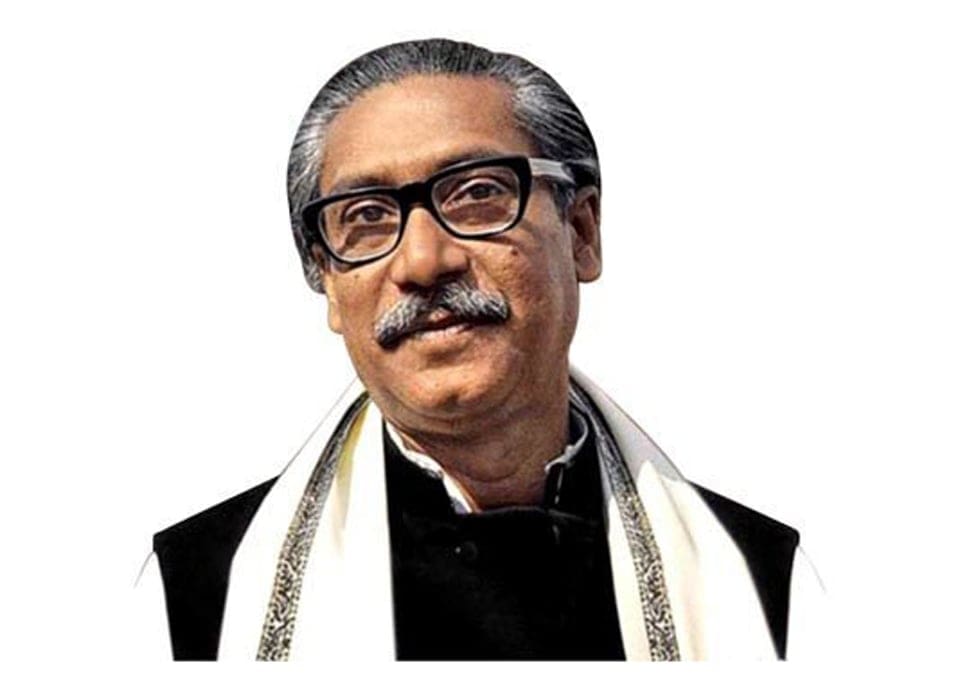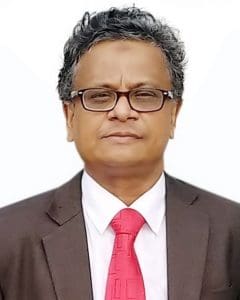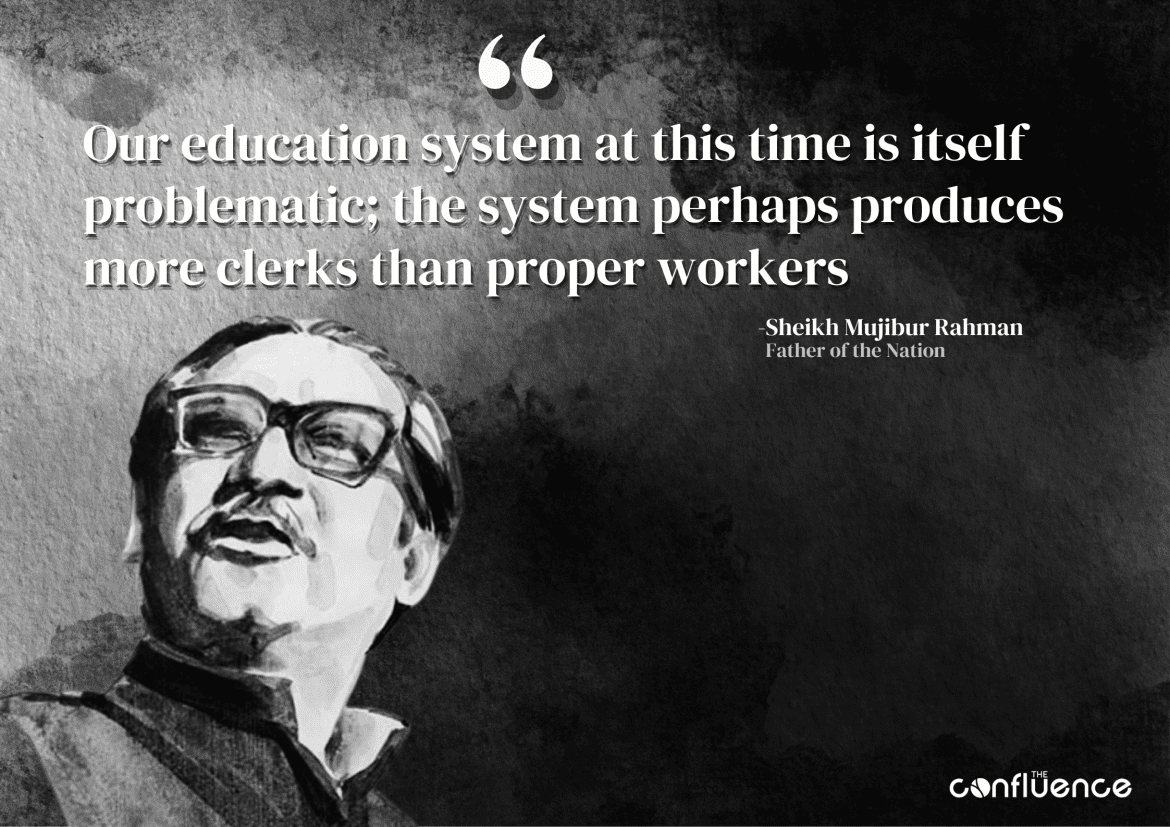Father of the Nation Bangabandu Sheikh Mujibur Rahman addressed intellectuals at the Circuit House in Chattogram on 30 March 1972. The speech delineates the contribution and sacrifices made by Bangalee intelligentsia during the liberation war as many of them were murdered by the Pakistani occupation army.
Bangabandhu had deep respect for intellectuals, and in many of his speeches to the nation, he offered his tribute to them because they sacrificed their lives for Bangladesh’s independence. In his speech on the occasion of the first anniversary of victory on 16 December 1972 at the Suhrawardy Udyan he remembered the martyred freedom fighters and “intellectual brothers” brutally killed “by the Pakistani armed forces with the help of local collaborators Al-Badr and Razakars”, “for they thought that the killing of the intellectuals will bring death for the people of this country”.
However, people’s hero was extremely disappointed to see that some of his own people, who can perhaps loosely be dubbed as “comprador”, “a relatively privileged, wealthy and educated elite”, (Ashcroft et al 47) and who had actively collaborated with British colonisers and then joined hands with West Pakistani exploiters to help perpetuate the subjugation of his land, were already busy serving their own gods, thus increasing the miseries of the poor and distressed on whom the nine-month bloody war of liberation had taken its heaviest toll. Bangabandhu had fought against this class before liberation and did not have an inch of doubt in his mind that little would they hesitate to pawn the hard-earned independence of the country as “local culture and political independence” (Ashcroft et al 48) hardly meant anything to them.
The comprador class invariably includes both the civil and military elite, and Bangabandhu addressed every rank and file — physicians, journalists, engineers, bureaucrats, the police, the army, poets and authors, politicians — in a series of speeches he delivered between 1972 and 1975, reminding them of their duties and responsibilities towards Bangladesh and its people. Bangabandhu’s speech is significant and should serve as a cautionary signal because in it Bangabandhu takes on the “comprador intelligentsia” (Kwame 149) — teachers, and academics in particular — for the heinous role some of them played during the liberation war as well as how they, theoretically nation-builders, miserably failed to discharge their duties. Bangabandhu focuses on his initiatives to revitalise the education sector. He reflects on the Education Commission he is about to set up. He takes on those intellectuals who worked as Pakistani collaborators during the war and even got their colleagues murdered by the occupation army. He calls upon all intellectuals and teachers to play an active role in the development of the newly independent country.
The Speech
The problems you all have talked about, we are all aware of them. I am also aware of them. I’ve told you that a commission[1] will be formed soon. It’ll be formed with scholars and intellectuals you trust. I don’t want to do anything in a haste because we need a comprehensive plan. Else, we won’t get any solution by doing one thing today and another thing tomorrow or the day after. What has been done before will be carried out. [It won’t be the case that] one thing will be abandoned today and taken up again day after tomorrow.
The Education Department has started doing some work. Doing and undoing things randomly won’t be a good idea to pursue, I told them. I’m a little bit annoyed with the commissions myself. Setting up of commissions was a way to bluff people in the past. A commission was formed, then it submitted its report; the government scrutinised it and prevented its publication. Then, no action was ever taken. I don’t have that kind of intention. You can even say that I have vehemently protested against this idea myself.
I say against these commissions, let’s get rid of these commissions. Get rid of these and come up with a proper thing. Our education system at this time is itself problematic; the system perhaps produces more clerks than proper workers whom we don’t have the ability to employ. Thus, we’re in dire need of an elaborate plan, and a commission is being formed to reform the education system.

Bangabandhu Sheikh Mujibur Rahman
On Education Plicy
You all must be favouring this as it’ll feature the senior scholars and intellectuals of our country. We’ll try to implement the report given after their consideration. If we don’t reform in a planned way to take education on a new road following a new train of thought with clarity, the country will never be free. If we cannot connect our education system with a socialist economy, the economic policy will never take its proper shape, regardless of our efforts to establish it or any other policy for that matter.
It’s the need of the hour to facilitate proper education for common people and eradicate illiteracy. We are unable to pay attention to every sector. If the truth could be told, how could we? You already know why we can’t. I assure you that I speak the truth, whether during making speeches on open fields or anywhere else. But I don’t need to make you understand what has happened to the country in the meantime. You all know it well. You all know how the state of the schools and colleges was. If Pakistani invaders were here for ten more days, I think no intellectuals would have been alive in Bangladesh.
They were murdering in a planned way. Such scenes have never been witnessed in the world. I’ve talked about it in my interviews with the foreign [press] and here. I’ve talked about how they imposed curfews in Dhaka and killed our intellectuals after abducting them from their homes, only 2-3 days before their surrender. Doctors were killed and their eyes were gouged out. Heart specialists were killed and their hearts were cut out. Journalists were killed and their fingers were cut off.
This is unheard of; how barbarous and atrocious! I’ve never read about anything like this in history. I’ve been involved in politics for a long time. I’ve witnessed movements; I’ve heard and read about them. In fact, I have been created out of movements. I made my way through movements to appear before you, as I wasn’t born in a well-off family where I could read about Sunday Politics. My politics has been always one of sacrifice and courage. I am well aware of the problem.
But the planned way by which they murdered the intellectuals is unheard of in human history. They said with pride that Mujibur Rahman would get Bangladesh but in a state from which it would never rise again. Now I’m getting to know that the barbarous generals said this with such pride, “We’ll show them golden Bengal. We won’t leave anything for him to stand by. He’ll never be here; even his followers won’t be able to do anything in the future.”

Bangabandhu Sheikh Mujibur Rahman
On Intellectual Martyrs
I’m here with the grace of Almighty and because of your prayers for me. Otherwise, even I wouldn’t have known that I would ever return. I was ready for anything. I made sure that I was ready to die because I didn’t want to humiliate my people. Then, at least, they would be able to say that the man they followed as their leader, died with his head held high.
Now, our problems are not only limited to education. I told you as much yesterday. What else is there to say! We need foreign exchange to run a government or to buy things from overseas. For 18-20 years, and since ’47, Bangalees had earned 70 percent of the total foreign exchange but about 70 percent of this earning was spent on West Pakistan. We didn’t get a penny. Not only that but also the money we need to pay off the debts they incurred, is also devaluing. Now it’s impossible for me to save a penny after paying off the debt. You all know about the recent situation. There are no medicine in store and no clothes we can wear; all the mills have been ravaged.
Don’t think that they left all the industries they owned here for us. They didn’t leave a penny here. All the banks and all the money were in their hands. They left with more money than these were worth by over drafting. Those are my liabilities now because our government took over them. The liabilities fall on the government. We have to bear the load. Moreover, we don’t have any ships and we can’t deliver any goods. 10-12 thousand trucks among 14 thousand have been burnt down by the invaders. We’ve to bring the trucks from abroad. They sunk the small coastal ships, which used to ply our waters. We’ve to bring new ships too. Tell me, what should I do? The invaders even ravaged the railways. Thus, I can’t transport goods. Tohori administration[2] which had been in place would exhaust everything. The railway is running on losses. What do you suggest I can do in such a situation?
But it’s true that if we can make our way for 1 or 2 years, the economy of Bangladesh won’t be in a bad state. I’m sure of that. I’ve resources and I’ll be able to earn foreign exchange in the future for sure. I’ll be able to earn some money. I’ll be able spend it for our development. Friendly states are supporting me. I said as much yesterday. It would be ungrateful if I didn’t acknowledge this.

Bangabandhu Sheikh Mujibur Rahman
On The Crisis after Independence
Even before our freedom, India, its Prime Minister, government and people have fed 10 million of our people. If we didn’t receive any immediate help from India after liberation, my friends wouldn’t have been able to run the government for a single day. It would have collapsed immediately until I came. Besides …Russia is also helping. You’re talking about problems. The teachers must have problems.
I can’t promise you anything. But what I want is pro-people education. I believe in it, and to implement pro-people education we need to work according to plans and programmes. This is why the Commission has been formed and as you can see, there isn’t any favouritism or controversy as regards formation of the Commission. We’re selecting only the deserving ones as vice-chancellors of universities and we’re sending the deserving candidates to them. It doesn’t matter who is my friend or brother because we’re trying to send only those whose eligibility is not questionable. We are sending those who are respected by the boys and the country so that faith is restored in the sector. Politics was there in every sector before. I don’t want to politicise this sector because it’s only wise not to do so.
This is why you are all there. Yet there are controversies. A number of people have acted as collaborators in every institution of every university. Don’t be angry with me. I’ve heard that a few professors of Dhaka University brought the military on their own to get their colleagues murdered. They were intellectuals too. They were doctorates of your departments too. They were highly educated teachers of your departments too. They’re professors and teachers. Tell me, what should I do about them?
Pardon my impudence, I respect intellectuals but what I think today is that you can forgive common people’s mistakes. But can we forgive these so-called intellectuals who have done such heinous things? Do you think I should?
The poor farmers and labourers of my country have not betrayed me. We, white-collar gentlemen, have betrayed a lot and we can never satisfy these white-collar gentlemen. Their demands have no end.

Bangabandhu Sheikh Mujibur Rahman
On The Elite Class
The poor farmers and labourers of my country have not betrayed me. We, white-collar gentlemen, have betrayed a lot and we can never satisfy these white-collar gentlemen. Their demands have no end. Villagers know that they don’t have anything but they never disturb us with their demands. Disturbance comes from these elegantly dressed so-called gentlemen. Their sacrifices are small but they always look for ways to amass more. They run after whoever is in power. Those people I had seen near Yahiya Khan’s door, are now trying to get near Sheikh Mujibur Rahman’s. If we don’t remain vigilant in this regard, there’ll be disaster. If you’re not vigilant, you’ll face disaster.
I’ll request a thing from you. It’s true that the politics students engage in and their activities are underdeveloped. But if there’s something constructive about it, we must accept it. You should also cooperate in this regard too. But if there’s a self-destructive movement brewing anywhere, it can’t bring any good to this free nation. I was involved with students’ movement for a long time. If something comes to someone without any struggle or sacrifice, he or she can never fully enjoy its perks and perceive its value.
Khan Bahadurs, the British Sirs, the British collaborators came to power after we had achieved freedom. But just look at our neighbour India – people had to struggle for 10, 15, 20 years – even Nehru had to endure imprisonment for 13 years to become the Prime Minister. He was the son of Shri Motilal Nehru. They made great sacrifices and showed dedication in the pursuit. By dint of these things they are now running the government there. And what had happened here? Whether it would be this Khan Bahadur or that Nawabjada ruling; whether it would be that Peerjada or that Sir in power — their conflicts over power devastated this country.

Bangabandhu Sheikh Mujibur Rahman
On The Elite Class
I request you to pardon my impudence. Not everyone is an angel within our intellectual community; some of them helped kill other intellectuals and some even participated in the killings. They had active roles. That’s why all of you must be careful. Also, bear in mind the request I made not to create divisions among the students for your promotion; that’s not right. It won’t bring any good to yourselves or the country in the future. I certainly don’t want to advise you. You’re wise and you’re intellectuals. It doesn’t look proper for me to advise you. I’m an ordinary person. How can I advise you? But I’m saying all these things as I have practical knowledge.
That is why I’m saying that the problems you are talking are there. The problems don’t have any boundaries. Tell me, which problem isn’t there? Let me ask you, what’s the first problem? My first problem is to make sure that no one dies of starvation. The scarcity of food is a dangerous problem. I’ve begun work on test relief. We’ve to reach out.
My opinion regarding the students and the teacher community, which I might suggest to the Commission, is that if we don’t work in villages for 1 or 2 months every year; if we don’t plough the land, then it’ll not be enough. Teachers will have to work in villages too. It’s my opinion. I don’t know what the Commission will do about it. However, it’s my opinion that teachers should go to villages and work there for a month every year. They have to work with the students there. We have to eliminate the distinction between city and village and we have to know the village.
Most of us may have studied with the income derived from selling jute and paddy because of the kind of household we were born into and the kind of earning our fathers had.
Well, brother, I’m the son of a paddy-seller. Yes. We provided for our education with the money we received by selling paddy. We forget things. Maybe we even forget a little about our parents too. If needed, maybe we give 20, 50 to 100 taka a month to our parents living in villages. And we have cars and live a comfortable life in our city homes. But my father’s lungi hasn’t changed yet.

Bangabandhu Sheikh Mujibur Rahman
On The Elite Class
That is why you’ve forgotten the villages you come from and have become city-based. But if you care about the villages, if you can encourage this move, the country will see good days soon. You have to realise this as you say that we create our posterity. I also want you to build the generations to come. However, I would like you to pay some attention to those who gave birth to you. This is my request to all of you.
References
- Ashcroft, et al. The Post-Colonial Studies: The Key Concepts. 2nd ed., Routledge, 2003.
- Kwame, A. A. In My Father’s House: Africa in the Philosophy of Culture. Oxford UP, 1992.
Footnotes
[1] Here Bangabandhu referred to the National Education Commission headed by the eminent scientist Dr Md Qudrat-e-Khuda which he constituted on 26 July, 1972. Commonly known as the Qudrat-e-Khuda Commission, the first ever education commission of the country, submitted its education report on 30 May, 1974, emphasizing “on secular at all-level, future work relevant technical and vocational education” (Banglapedia).
[2] An administration which charged more taxes than was due and devoured everything; a crooked administration.
About the Author

Dr Ahmed Ahsanuzzaman is Professor at the Department of English and Modern Languages, Independent University, Bangladesh (IUB). He was a member of the International Publications and Translations sub-committee of the National Implementation Committee for celebrating the birth centenary of the Father of the Nation Bangabandhu Sheikh Mujibur Rahman. He was also an editorial board member of the book, Father of the Nation Bangabandhu Sheikh Mujibur Rahman: Birth Century Volume (2021) edited by the Honourabale Prime Minister of Bangladesh, Sheikh Hasina. His forthcoming publication includes Bangabandhu’s Homecoming: The RAF Comet Aircraft & British Secret Documents, a translation of Tarik Sujat’s book in Bangla published in 2022.

1 comment
Respected Professor “Excellent”, Thanks for sharing. Regards. Ridwan